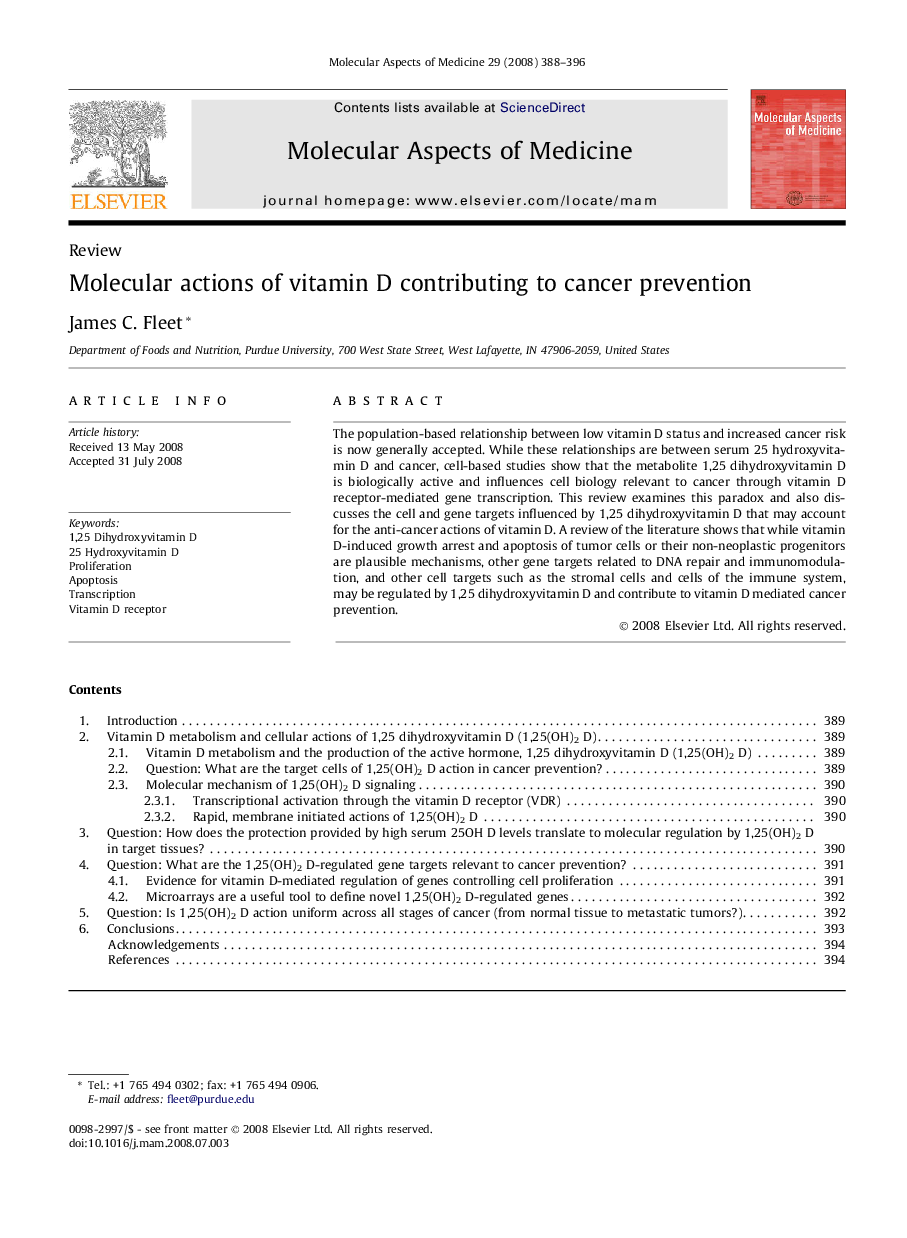| Article ID | Journal | Published Year | Pages | File Type |
|---|---|---|---|---|
| 1995946 | Molecular Aspects of Medicine | 2008 | 9 Pages |
The population-based relationship between low vitamin D status and increased cancer risk is now generally accepted. While these relationships are between serum 25 hydroxyvitamin D and cancer, cell-based studies show that the metabolite 1,25 dihydroxyvitamin D is biologically active and influences cell biology relevant to cancer through vitamin D receptor-mediated gene transcription. This review examines this paradox and also discusses the cell and gene targets influenced by 1,25 dihydroxyvitamin D that may account for the anti-cancer actions of vitamin D. A review of the literature shows that while vitamin D-induced growth arrest and apoptosis of tumor cells or their non-neoplastic progenitors are plausible mechanisms, other gene targets related to DNA repair and immunomodulation, and other cell targets such as the stromal cells and cells of the immune system, may be regulated by 1,25 dihydroxyvitamin D and contribute to vitamin D mediated cancer prevention.
